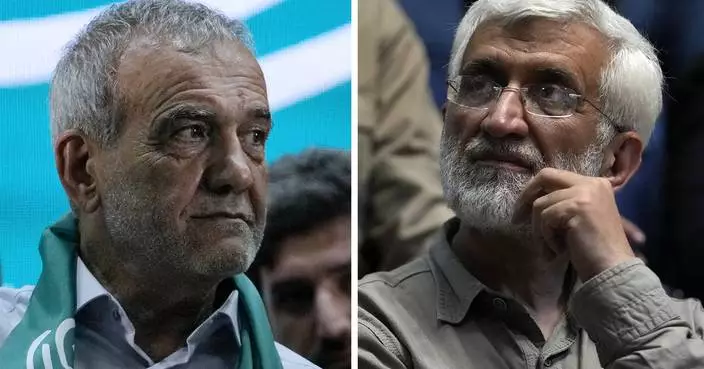MINNEAPOLIS (AP) — Two of five people charged with conspiring to bribe a Minnesota juror with a bag of $120,000 in cash in exchange for the acquittal of defendants in one of the country’s largest COVID-19-related fraud cases pleaded not guilty Wednesday.
Said Shafii Farah and Abdulkarim Shafii Farah were arraigned before U.S. Magistrate Judge Tony Leung in Minneapolis. A third co-defendant already pleaded not guilty last week. They are each charged with one count of conspiracy to bribe a juror, one count of bribery of a juror and one count of corruptly influencing a juror. Leung ordered both men detained before trial, saying the crimes of which they are accused threaten foundational aspects of the judicial system.
“In my decades on the bench, I've not experienced an attempt at bribing a juror in such a precalculated and organized and executed way,” Leung said. “That to me goes to the heart of an attack on our judicial system, on the rule of law.”
Attorneys for Said Farah and Abdulkarim Farah asked Leung to consider releasing them before trial with certain conditions, arguing the law sets no presumption of detention for the charges they face. They also said both men had significant ties to the community that would prevent them from fleeing.
Assistant U.S. Attorney Joe Thompson said juror bribes are so rare as to be “nearly unprecedented.” He likened the five Minnesota defendants to John Gotti, the notorious mob boss at whose 1987 trial a juror was later found to have taken a cash bribe to help secure an acquittal.
Leung said threatening the rule of law put the community at risk, and necessitated the detention of both men.
Court documents made public last week revealed an extravagant scheme in which the accused researched the juror’s personal information on social media, surveilled her, tracked her daily habits and bought a GPS device to install on her car. Authorities believe the defendants targeted the woman, known as “Juror 52,” because she was the youngest and they believed her to be the only person of color on the panel.
The FBI said the juror called police after Ali allegedly came to her house and handed a gift bag containing $120,000 in cash to the juror’s relative and explained there would be more money if the juror voted to acquit. The juror was removed from the case before deliberations began.
The other three people charged with crimes related to the bribe are Abdiaziz Shafii Farah, Abdimajid Mohamed Nur and Ladan Mohamed Ali. Abdiaziz Farah, who is also charged with one count of obstruction of justice, will not be arraigned until July 10 because he recently retained a new attorney. Ali pleaded not guilty last week and hearings have not taken place yet for Nur.
The bribe attempt brought renewed attention to the trial of seven Minnesota defendants accused of coordinating to steal more than $40 million from a federal program that was supposed to feed children during the coronavirus pandemic. Abdiaziz Farah and Abdimajid Nur were among five people convicted in the fraud trial last month while Said Farah and another person were acquitted. Abdulkarim Farah and Ali were not involved.
More than $250 million in federal funds were taken overall in the scheme and only about $50 million has been recovered, authorities say. Abdiaziz Farah sent millions in stolen money to Kenya that he used to purchase a 12-story apartment building in Nairobi, prosecutors have said.
In public statements after the bribery charges were announced, prosecutors have said the case will leave a lasting impact on the area's criminal justice system.
“It is no overstatement to say that it really has shook our legal community and called into question the way we conduct jury trials in this district moving forward,” Thompson said.
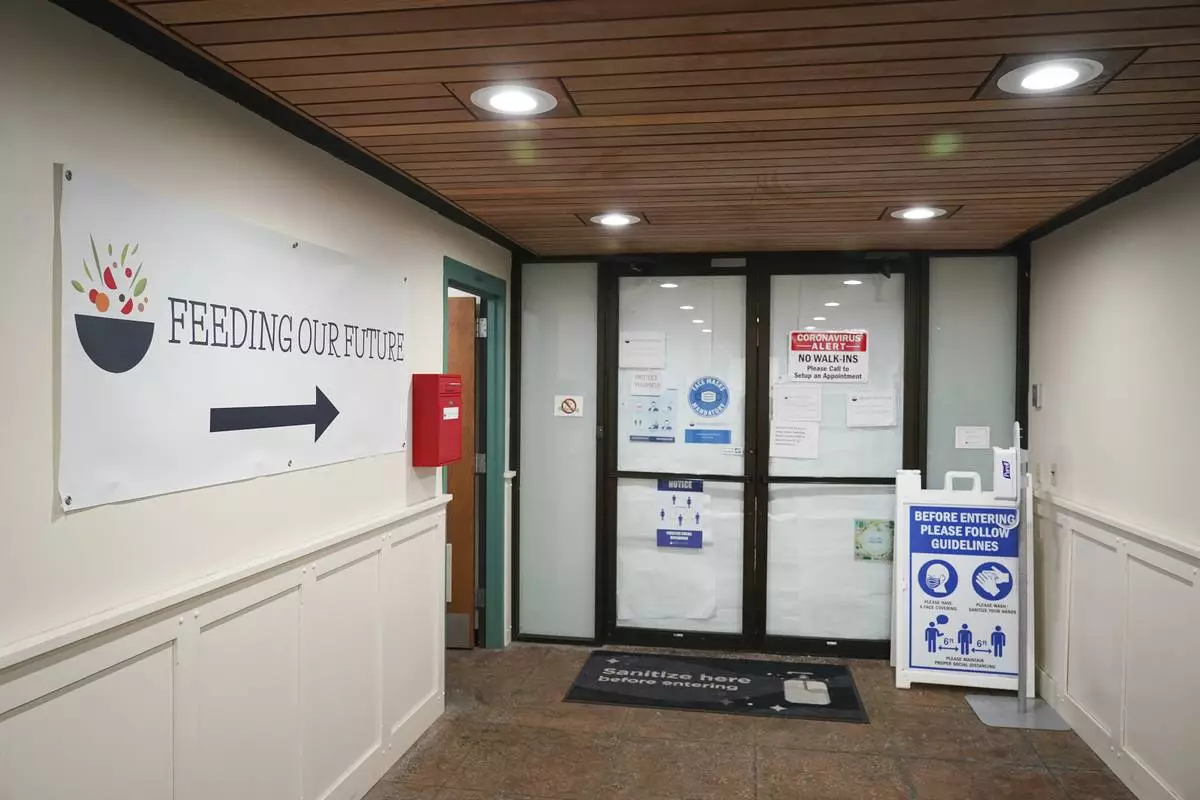
FILE - The office of Feeding Our Future is seen, Jan. 27, 2022, in St. Anthony, Minn., a week after an FBI raid. Two of five people charged with conspiring to bribe a Minnesota juror with a bag of $120,000 in cash in exchange for the acquittal of defendants in one of the country’s largest COVID-19-related fraud cases pleaded not guilty Wednesday, July 3, 2024. (Shari L. Gross/Star Tribune via AP, File)
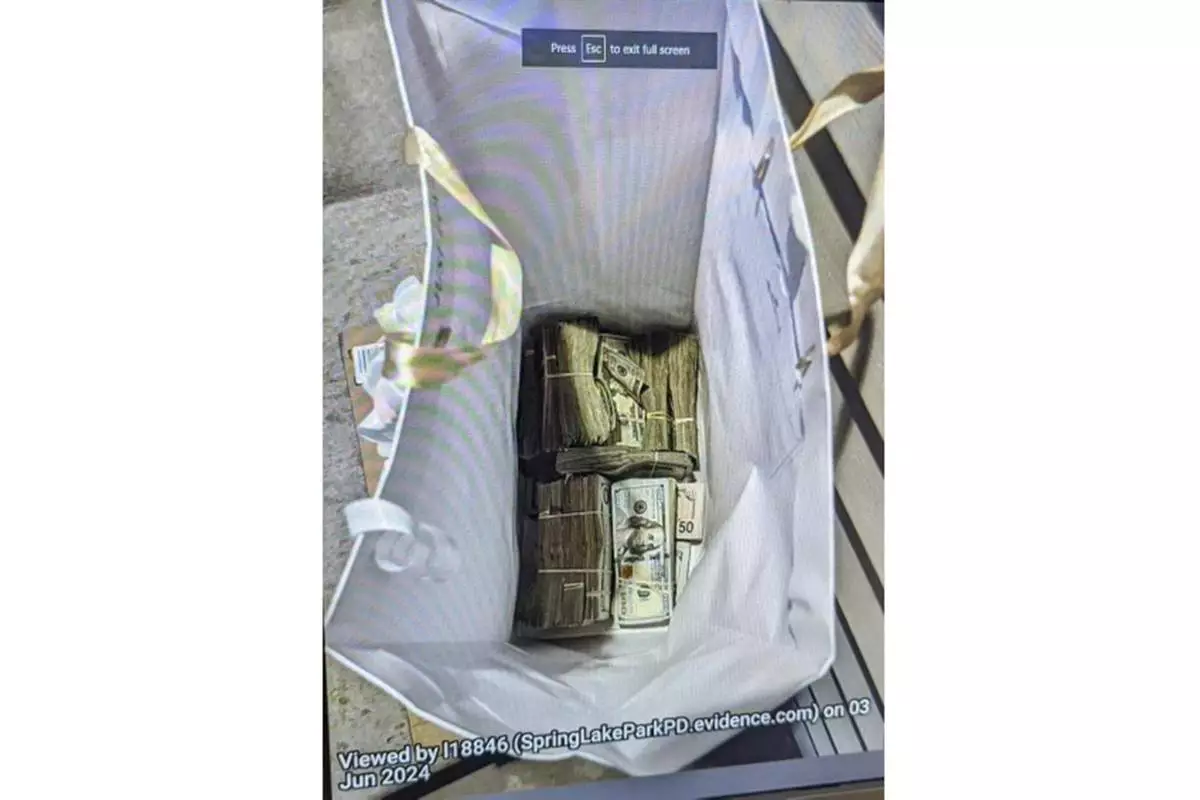
FILE - This photo supplied by the U.S. Attorney's Office for Minnesota shows cash from a bag that was left at the home of a juror in a massive fraud case, June 2, 2024, outside Minneapolis, Minn. Two of five people charged with conspiring to bribe the juror with a bag of $120,000 in cash in exchange for the acquittal of defendants in one of the country’s largest COVID-19-related fraud cases pleaded not guilty Wednesday, July 3, 2024. (U.S. Attorney's Office for Minnesota via AP, File)
MAIDUGURI, Nigeria (AP) — Ten years after declaring a short-lived caliphate in the Nigerian town of Gwoza, just across the border with Cameroon, Islamic extremists deployed female suicide bombers there — their first in the conflict-battered region since 2020 — to sound an alarm: One of the world’s longest wars is still happening.
The first of the three coordinated suicide bombings on June 30 targeted a well-attended wedding. The second was detonated at the burial ceremony for the victims, and the third at a hospital attending to those injured.
At least 32 people in total were killed in the attacks, including nine family members and friends of Mohammed Kehaya, a resident who is now worried about his safety in Borno state, the hotbed of the Islamic militancy that started in 2009.
Nigeria Defense Chief Gen. Chris Musa said the attacks were not a setback for the military but “a sign of desperation," describing them as a one-off by the extremists who once took the world by surprise when they kidnapped hundreds of schoolgirls in Borno in 2014.
“Some individuals would do everything possible for us not to succeed,” Gen. Musa said of the attackers.
However, several security analysts and locals interviewed about the bombings echoed concerns that the attacks must have taken a lot of planning and coordination and portend danger in Borno, where some villages lack security presence.
One of the extremists’ goals could be to distort the narrative that the security situation in the region has normalized, said Vincent Foucher, consulting senior analyst for West Africa at the International Crisis Group.
“It’s a way to show the war goes on,” Foucher said.
No group has claimed responsibility for the bombings, but blame quickly fell on Boko Haram, which since 2009 has launched an insurgency to establish their radical interpretation of Islamic law, or Sharia, in northeastern Nigeria. They have since splintered into different factions, together accounting for the direct deaths of at least 35,000 people and the displacement of more than 2 million amid a humanitarian crisis with people in dire need of foreign aid.
Two days before the bombings, Nigerian military spokesperson Maj. Gen. Edward Buba was meeting with reporters in the capital, Abuja, where he spoke of successes recorded by security forces in their war against extremists. Even while admitting it would “take time and effort to completely destroy” them, he repeated a phrase frequently said among Nigerian officials: “We have greatly degraded the terrorists.”
In Borno, however, the bombings sent shock waves across families and left many wondering whether they should pack what was left of their belongings and flee once again.
“Parents have been calling in to ask if their kids would be safe going back to school,” said Yusuf Ibn Tom, a public school teacher in Maiduguri. “Everyone here is scared.”
At the height of the insurgency in 2014, Boko Haram was considered the world's deadliest terrorist group, killing at least 6,000 people that year alone, according to the Institute for Economics and Peace’s Global Terrorism Index. A lot has changed since then that has made the extremists far less lethal.
The military has pushed them further into the fringes of the Lake Chad axis. The 2021 death of the group’s founding leader, Abubakar Shekau, demoralized some members and made suicide bombing less popular. Clashes between Shekau’s faction and the one linked to the Islamic State group have made the extremists turn against themselves, sometimes shifting the focus of attacks from the military and civilians and even contributing to the defection of thousands who are undergoing a reintegration program.
But what has not changed over the years is the “operational prowess” of the extremists, said Cameron Hudson, an Africa expert at the Center for Strategic and International Studies.
Attacks like the latest one “are rarely one-off incidents and are often part of a wider series,” Hudson said, not ruling out that more might come in the future. “That will give a better indication of the relative strength of the insurgency today as well as the Nigerian military’s ability to respond,” he added.
Asadu reported from Abuja, Nigeria.
Follow AP’s Africa coverage at: https://apnews.com/hub/africa
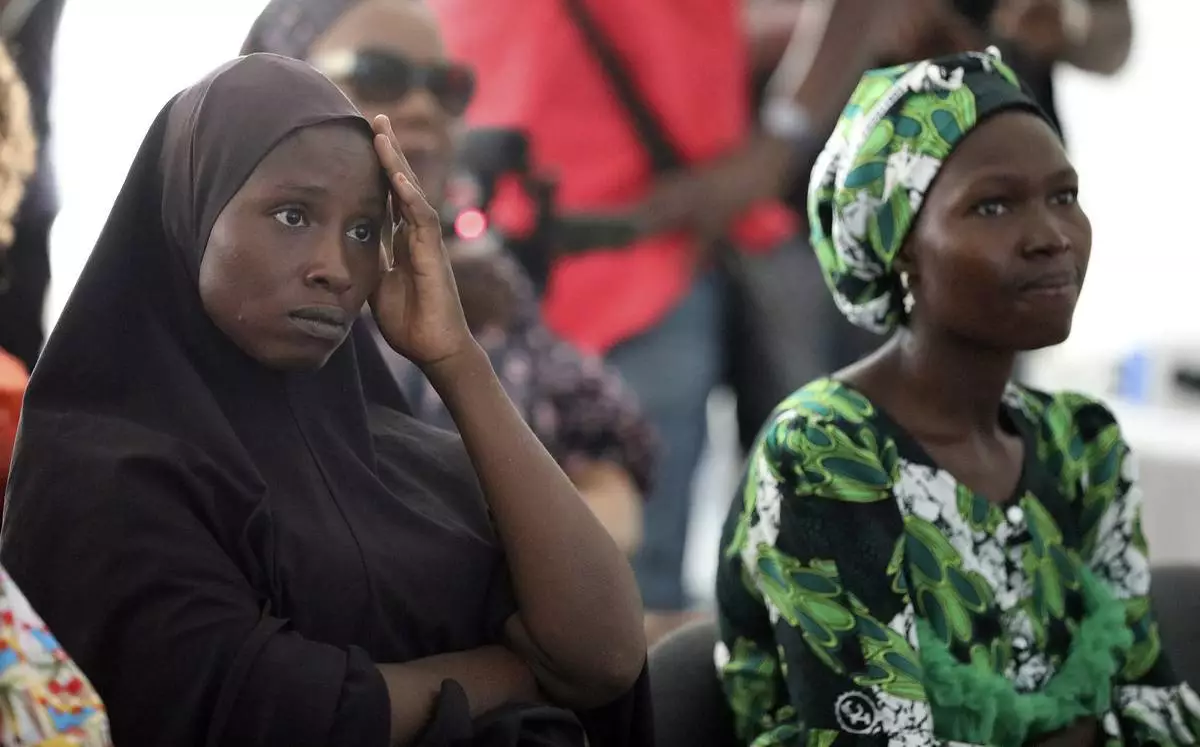
FILE - Parents of Chibok schoolgirls who were kidnapped in 2014 by Islamic extremists, attend a 10th anniversary event of the abduction in Lagos, Nigeria, on April 4, 2024. Recent suicide bombings in northeastern Nigeria have raised questions about the country's claim that it has degraded the Islamic extremists whose insurgency since 2009 has killed more than 35,000 people directly and displaced more than 2 million. (AP Photo/Mansur Ibrahim, File)
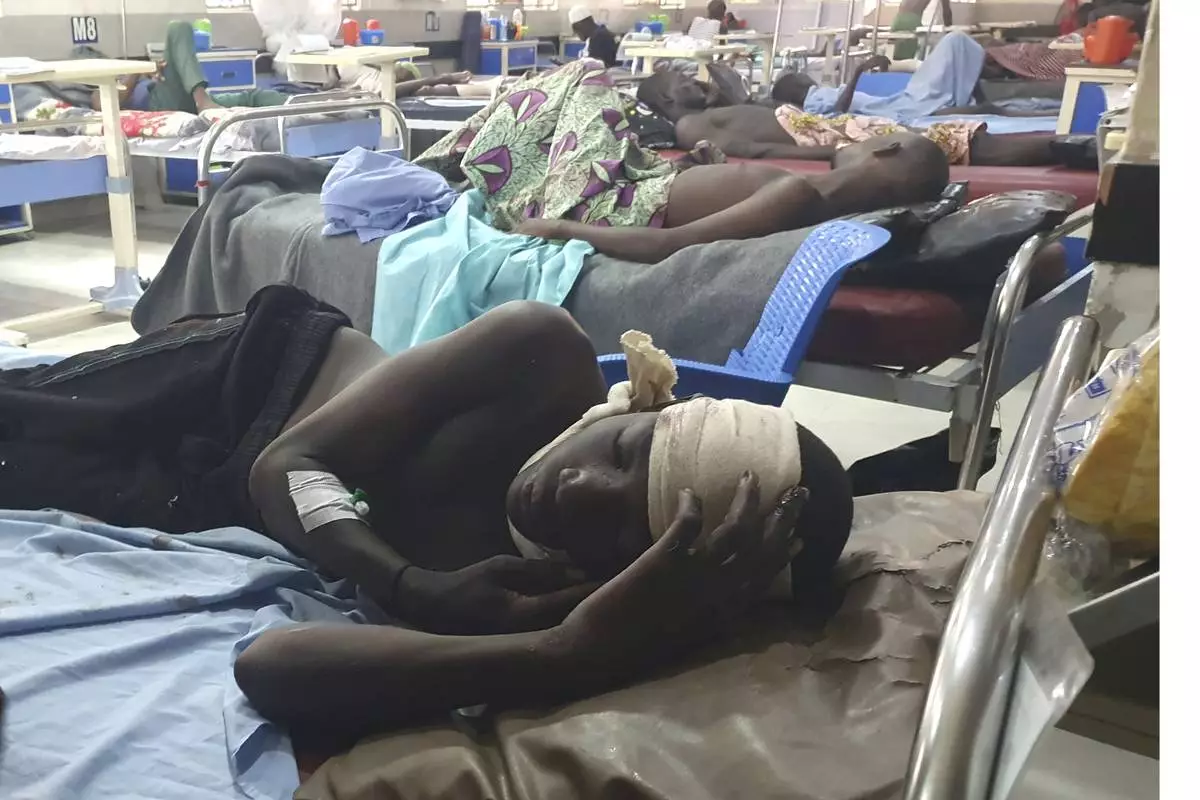
FILE - Injured victims of a suicide bomb attack receive treatment at a hospital in Maiduguri, Nigeria, on June 30, 2024. Recent suicide bombings in northeastern Nigeria have raised questions about the country's claim that it has degraded the Islamic extremists whose insurgency since 2009 has killed more than 35,000 people directly and displaced more than 2 million. (AP Photo/Joshua Omiri, File)
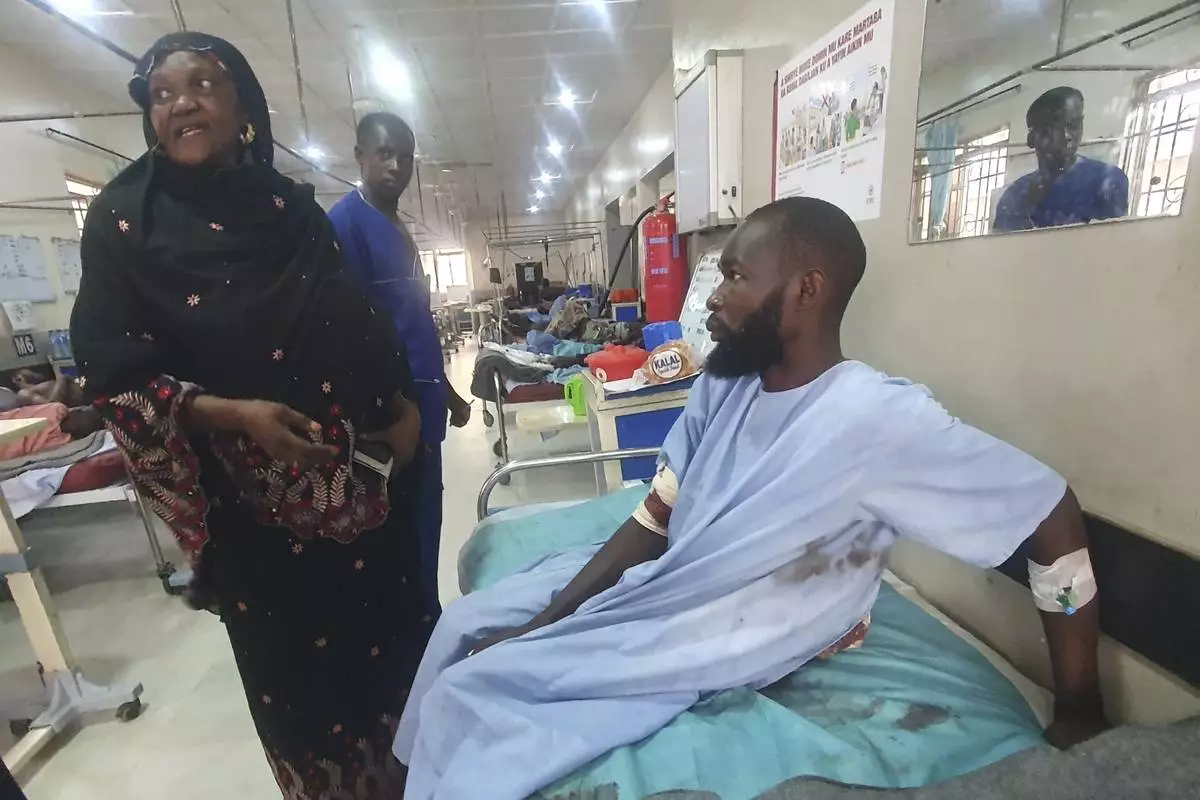
FILE - An injured victim of a suicide bomb attack receives treatment at a hospital in Maiduguri, Nigeria, on June 30, 2024. Recent suicide bombings in northeastern Nigeria have raised questions about the country's claim that it has degraded the Islamic extremists whose insurgency since 2009 has killed more than 35,000 people directly and displaced more than 2 million. (AP Photo/Joshua Omiri, File)








